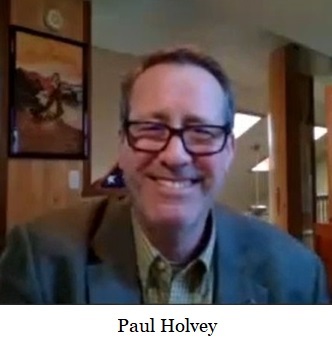A losing battle for the forest industry
Last October, U.S. Senators Jeff Merkley and Ron Wyden announced Oregon would receive $1,519,627 in federal grants to help support the development of habitat conservation plans to improve the management of state and private forestlands. The funding goes to the Oregon Private Forest Accord Aquatic Species Habitat Conservation Plan in the amount of $769, 627, and Western Oregon State Forests Habitat Conservation Plan received $750,000.
This was after Merkley and Wyden announced the Oregon Mass Timber Coalition was awarded $41.4 million Build Back Better grant to advance Oregon’s sustainable mass timber sector intended to grow jobs and increase wood production and manufacturing.
“Forests in Oregon support rural economies and are also home to countless species including vulnerable salmon,†said Senator Merkley. “In this era of mega-wildfires, they’re also increasingly potential hazards if not properly managed.†Merkley claims that the Memorandum of Understanding reached by the Private Forest Accord improves the management of state and private forestlands in Oregon. If true, why does the state need to do another study to develop recommendations on state forest management,
SB 90?
The age-old conflict in forest management also raises the question of the forest sector paying its fair share has risen again with the re-introduction of a severance tax. The state had a severance tax on timber harvest prior to 1991, which was dwindling leaving rural counties in the red. It was phased out by 2003 and replaced by a harvest tax. The Forest Products Harvest Tax (FPHT) applies to timber harvested from all land in Oregon, except most tribal lands. No distinction is made between timber harvested from private lands and government-owned lands.
Representative Paul Holvey (D-Eugene) and Senator Jeff Golden (D-Ashland) are proposing to replace the forest products harvest tax and restore a severance tax in
HB 3025. Similar to the harvest tax, it imposes a severance tax at harvest on timber owners of public and private forestlands. The bill adds distribution of 40 percent going to the Wildfire Management Fund and 5 percent to the Watershed Conservation Grant Fund after receiving $42.9 million federal grants. Also new is 40 percent going to the general fund of each county according to their proportion. That 85 percent is offset by reducing the State Forestry Department Account to 10 percent, reducing the Forest Research and Experiment Account to 5 percent, eliminates the Public University Fund for professional forestry education, and repeals the Oregon Forest Land Protection Fund.
Should fire suppression emergency funds be eliminated? The Oregon Forest Land Protection Fund was established as an 'insurance fund' for the purpose of equalizing emergency fire suppression costs among the various Oregon Department of Forestry protection districts. The emergency funding system is designed to operate as an insurance policy whereby all districts contribute (pay premiums) into the fund so that money will be available to any individual district to pay fire suppression costs on emergency fires.
HB 3025 describes a tiered tax by the amount of acreage owned, multiplied by pond value of timber at time of harvest. The rate is discounted if management is certified by the Forest Stewardship Council (FSC). The FSC is an international non-profit, multistakeholder organization that “promotes environmentally appropriate, socially beneficial, and economically viable management of the world's forests†via timber certification. While it may be advantageous for timber owners to join, it isn’t financially responsible for the state to promote them via a discount. The rates should be reduced for all owners without obligation.
A D V E R T I S E M E N T

A D V E R T I S E M E N T
A tax review commissioned by the Oregon Forest & Industries Council (OFIC), reported
Tax contributions of Oregon’s Forest Industry is paying 1.5 times more in overall taxes than the average Oregon business.
One timber owner told Northwest Observer, “They want more taxes while they’re shutting down more timberland. Between the Elliott State Forest, the Western HCP impacts 2/3rds of our state forests, the new Forest Management Plan that aligns itself with the Western HCP, and the Private Forest Accord which affects over 60,000 timberland owners in Oregon by increasing unmanaged land on their private property, the only way ODF and other beneficiaries of harvest tax revenue can operate is to keep increasing taxes to offset the decrease in harvestable timberland.â€
--Donna Bleiler| Post Date: 2023-02-10 02:37:56 | Last Update: 2023-02-10 15:19:21 |







